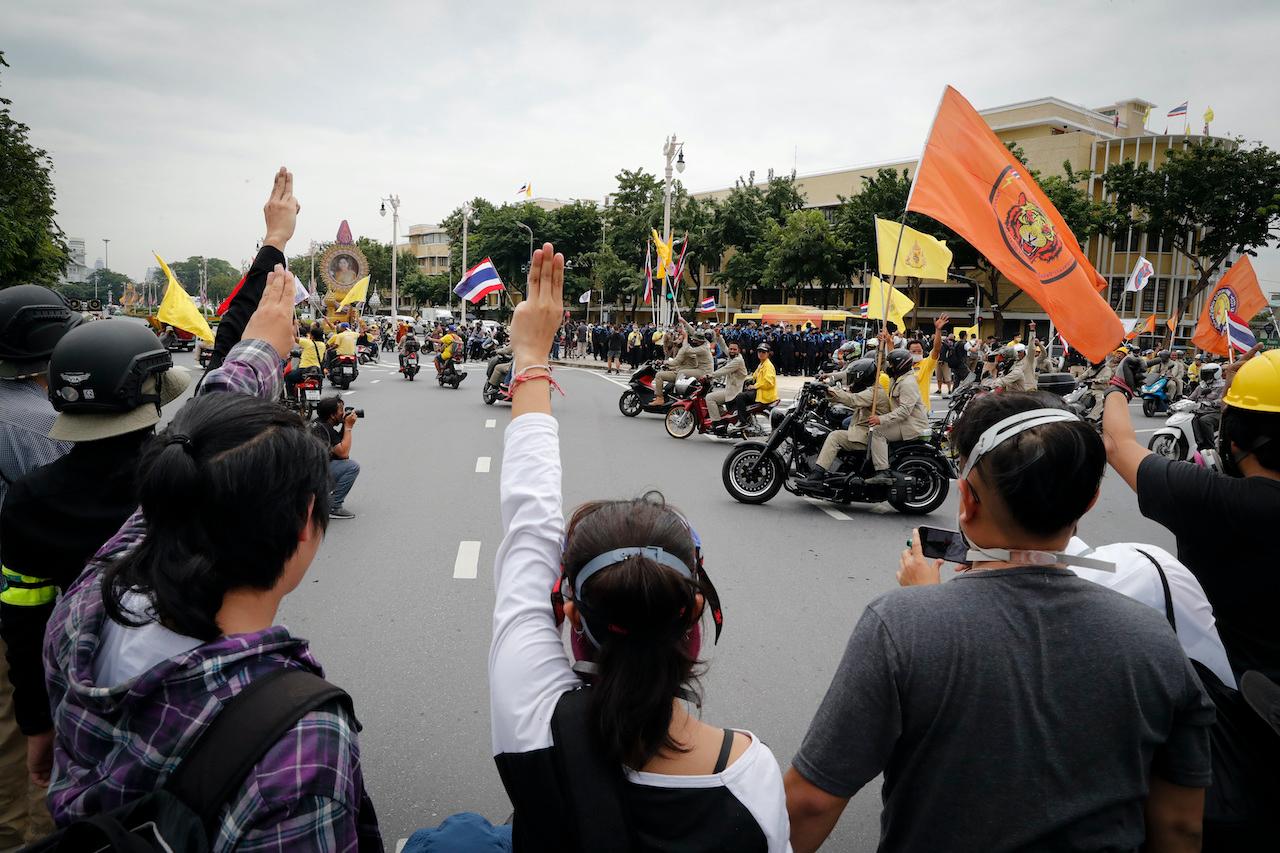Thai protesters rally again, giving king’s motorcade three-finger salute
Many die-hard mostly older royalists were critical of the protesters.
Just In
Hundreds of mostly young Thai protesters scuffled with police, throwing blue paint and chanting slogans at the royal motorcade of King Maha Vajiralongkorn on Tuesday.
As the king’s car swept past, the crowd called for constitutional reform and waved the protest movement’s three-fingered salute, in a display of dissent towards the monarchy that has no recent precedent in Thailand.
Tuesday was a public holiday marking four years since the death of the king’s father, King Bhumibol Adulyadej, who reigned for 70 years and was widely respected by Thais.
Vajiralongkorn, who spends most of his time in Germany, was making a rare visit to Thailand for the occasion.
It is the strong contrast between the old king’s perceived dedicated service to his people and his eccentric son’s cavalier and high-handed behaviour towards them that triggered the protests, which have persisted for three months, presenting the biggest challenge in years to a political establishment traditionally dominated by the army and the palace.
“This is the ugliness of feudalism, where one person can do anything and the majority of the people have to accept it unconditionally,” Parit Chirawat, a student leader, said on Twitter.
Protesters are also calling for the removal of Prime Minister Prayuth Chan-ocha, a retired army officer and the former leader of the military junta which governed Thailand between 2014 and 2019.
Insults to the monarchy can result in up to 15 years in prison but the prime minister said earlier this year that the king requested that the punishment not be used for now.
Protesters have said they are not seeking the abolition of the monarchy, just to reduce the king’s powers under a revised constitution and to reverse an order which put the palace fortune and elite army units under his sole control.
“The monarchy has to be under the constitution, that is how it is supposed to be,” said 21-year-old protester Waranya Siripanya.
Many die-hard royalists, mostly from the older generation, were critical of the protesters.
“They may have been taught that the monarchy doesn’t have any value,” Narongsak Poomsisa-ard, 67, told Reuters. “But I want to remind them that our nation exists until today, because we have strong institutions.”
The palace has not yet responded to requests for comment on the protests or demands for royal reform.
Subscribe to our newsletter
To be updated with all the latest news and analyses daily.
